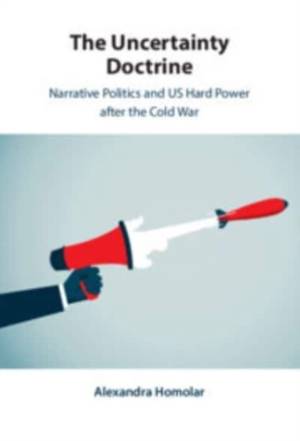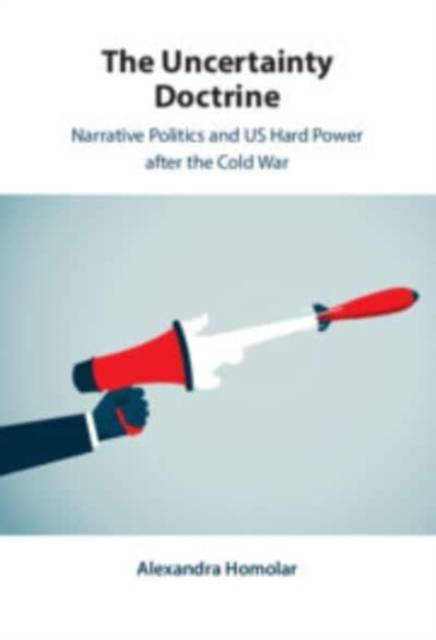
- Afhalen na 1 uur in een winkel met voorraad
- Gratis thuislevering in België vanaf € 30
- Ruim aanbod met 7 miljoen producten
- Afhalen na 1 uur in een winkel met voorraad
- Gratis thuislevering in België vanaf € 30
- Ruim aanbod met 7 miljoen producten
Zoeken
The Uncertainty Doctrine
Narrative Politics and US Hard Power after the Cold War
Alexandra Homolar
Hardcover | Engels
€ 158,95
+ 317 punten
Omschrijving
The post-Cold War era is often seen as a missed opportunity of epic proportions for the United States to turn swords into ploughshares, with much of the blame placed on international developments. The Uncertainty Doctrine challenges the conventional take on post-Cold War history as imposed on the US by events largely outside its control. It shows in rich empirical detail how America's 'peace dividend' did not merely fall by the wayside but was actively undermined by the narrative contests over the security implications of the New World Order. Committed to understanding the ontological significance of narrative in (inter)national security, Alexandra Homolar demonstrates that political agents have the capacity to respond to a systemic shock through discursive adaptation and reorganization. While narrative politics may not always matter in US defense policy, at moments perceived as bifurcation points it can be decisive in why some strategic responses prevail over possible alternatives.
Specificaties
Betrokkenen
- Auteur(s):
- Uitgeverij:
Inhoud
- Aantal bladzijden:
- 260
- Taal:
- Engels
Eigenschappen
- Productcode (EAN):
- 9781009355117
- Verschijningsdatum:
- 14/09/2023
- Uitvoering:
- Hardcover
- Formaat:
- Genaaid
- Afmetingen:
- 152 mm x 229 mm
- Gewicht:
- 517 g

Alleen bij Standaard Boekhandel
+ 317 punten op je klantenkaart van Standaard Boekhandel
Beoordelingen
We publiceren alleen reviews die voldoen aan de voorwaarden voor reviews. Bekijk onze voorwaarden voor reviews.







